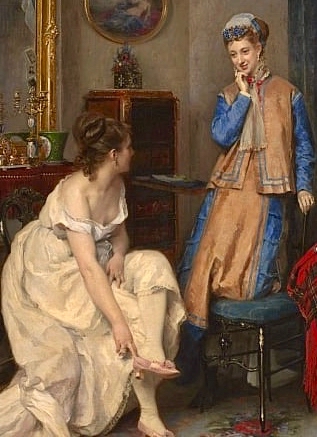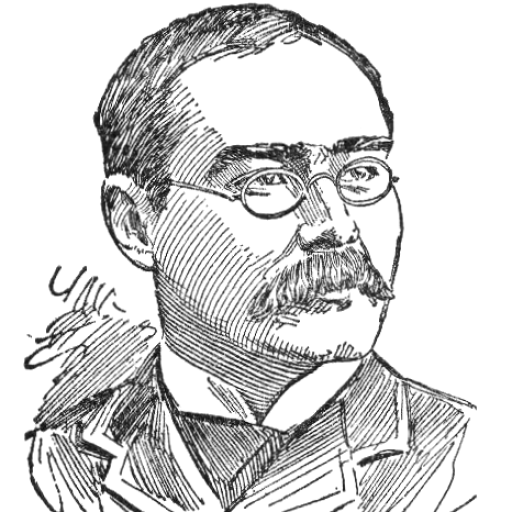For the Colonel’s lady and Judy O’Grady Are sisters under their skins

In reading this poem, one should keep in mind that it is not Kipling expounding his own ideas about women (Kipling married at the age of twenty-six and, as far as we know, was strictly monogamous). Rather, the speaker is an archetypal British soldier – a “Tommy Atkins” – who is describing the four women with whom he has been seriously involved during his life. As Kipling says in another poem titled ‘Tommy’ –
Why, single men in barricks don’t grow into plaster saints …
The narrator is certainly no plaster saint. Yet through the poem emerges a sympathetic portrait of this ‘Tommy’ – an unschooled and uncomplicated man, but a decent human being.
This poem contains one of Kipling’s best known lines –
For the Colonel's lady and Judy O'Grady Are sisters under their skins.
The Ladies
I've taken my fun where I've found it;
I've rogued an' I've ranged in my time;
I've 'ad my pickin' o' sweethearts,
An' four o' the lot was prime.
One was an 'arf-caste widow,
One was a woman at Prome, (1)
One was the wife of a jemadar-sais, (2)
An' one is a girl at 'ome.
Now I aren't no 'and with the ladies,
For, takin' 'em all along,
You never can say till you've tried 'em,
An' then you are like to be wrong.
There's times when you'll think that you mightn't,
There's times when you'll know that you might,
But the things you will learn from the Yellow an' Brown,
They'll 'elp you a lot with the White!
I was a youn un at 'Oogli,
Shy as a girl to begin;
Aggie de Castrer she made me,
An' Aggie was clever as sin;
Older than me, but my first un -
More like a mother she were -
Showed me the way to promotion an' pay,
An' I learned about women from 'er!
Then I was ordered to Burma,
Actin' in charge o' Bazar,
An' I got me a tiddy live 'eathen
Through buyin' supplies off 'er pa.
Funny an' yellow an' faithful -
Doll in a teacup she were -
But we lived on the square, like a true-married pair,
An' I learned about women from 'er!
Then we was shifted to Neemuch (3)
(Or I might ha' been keepin' 'er now),
An' I took with a shiny she-devil,
The wife of a nigger at Mhow; (4)
'Taught me the gipsy-folks' bolee; (5)
Kind o' volcano she were,
For she knifed me one night
'cause I wished she was white,
And I learned about women from 'er!
Then I come 'ome in a trooper,
'Long of a kid o' sixteen -
'Girl from a convent at Meerut, (6)
The straightest I ever 'ave seen.
Love at first sight was 'er trouble,
She didn't know what it were;
An' I wouldn't do such, 'cause I liked 'er too much,
But - I learned about women from 'er!
I've taken my fun where I've found it,
An' now I must pay for my fun,
For the more you 'ave known o' the others
The less will you settle to one;
An' the end of it's sittin' and thinkin',
An' dreamin' Hell-fires to see;
So be warned by my lot (which I know you will not),
An' learn about women from me!
What did the Colonel's Lady think?
Nobody never knew.
Somebody asked the Sergeant's Wife,
An' she told 'em true!
When you get to a man in the case,
They're like as a row of pins -
For the Colonel's Lady an' Judy O'Grady
Are sisters under their skins!
Notes
[1] In Burma (Myanmar), up the Irrawaddy River some 160 miles from Rangoon.
[2] ‘Jemadar- sais’: Head-groom.
[3] Nimuch, in Madhya Pradesh state (central India), was formerly a large British cantonment.
[4] Mhow is another former large British cantonment in Madhya Pradesh. In Kipling’s time uneducated Britons referred derisively to all people with skins darker than their own as “niggers”, as in the pejorative expression “niggers start at Calais”.
[5] ‘Bolee’ – slang.
[6] Meerut is some fifty miles NE of Delhi.
